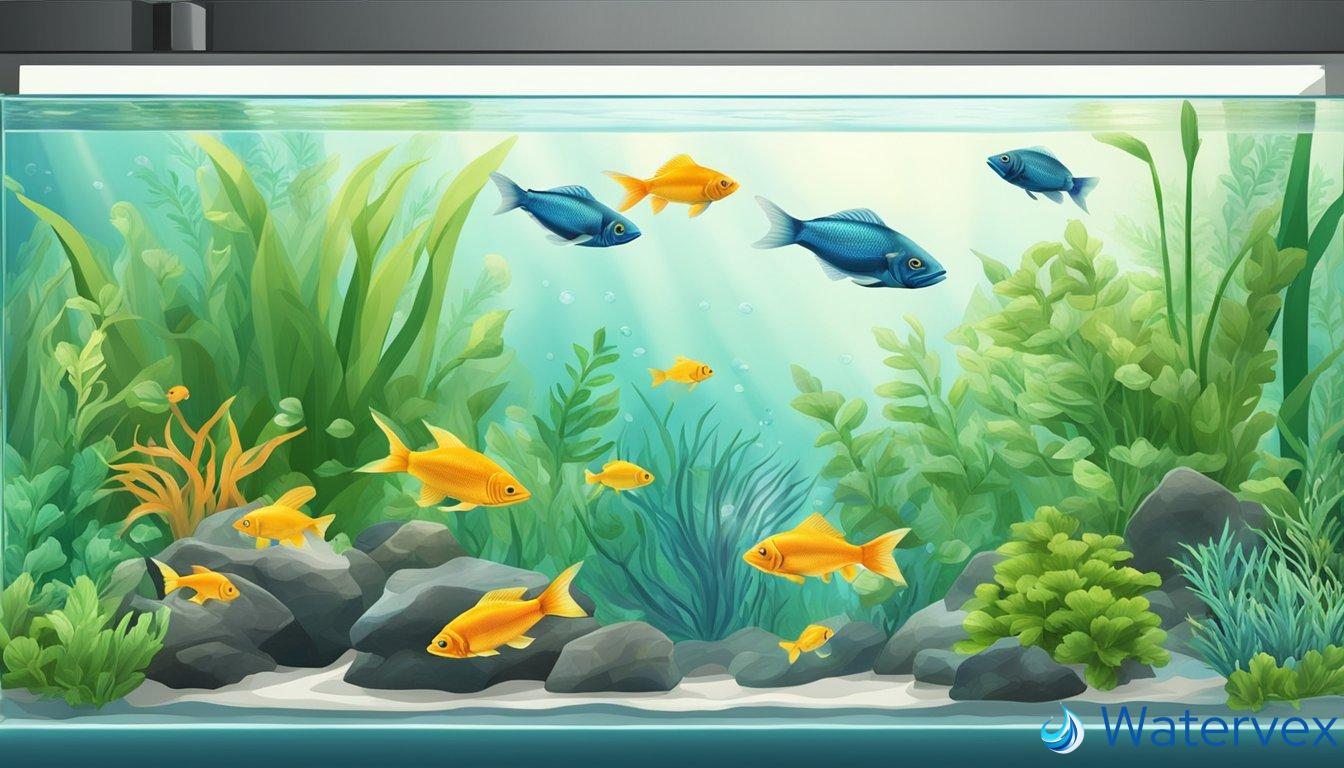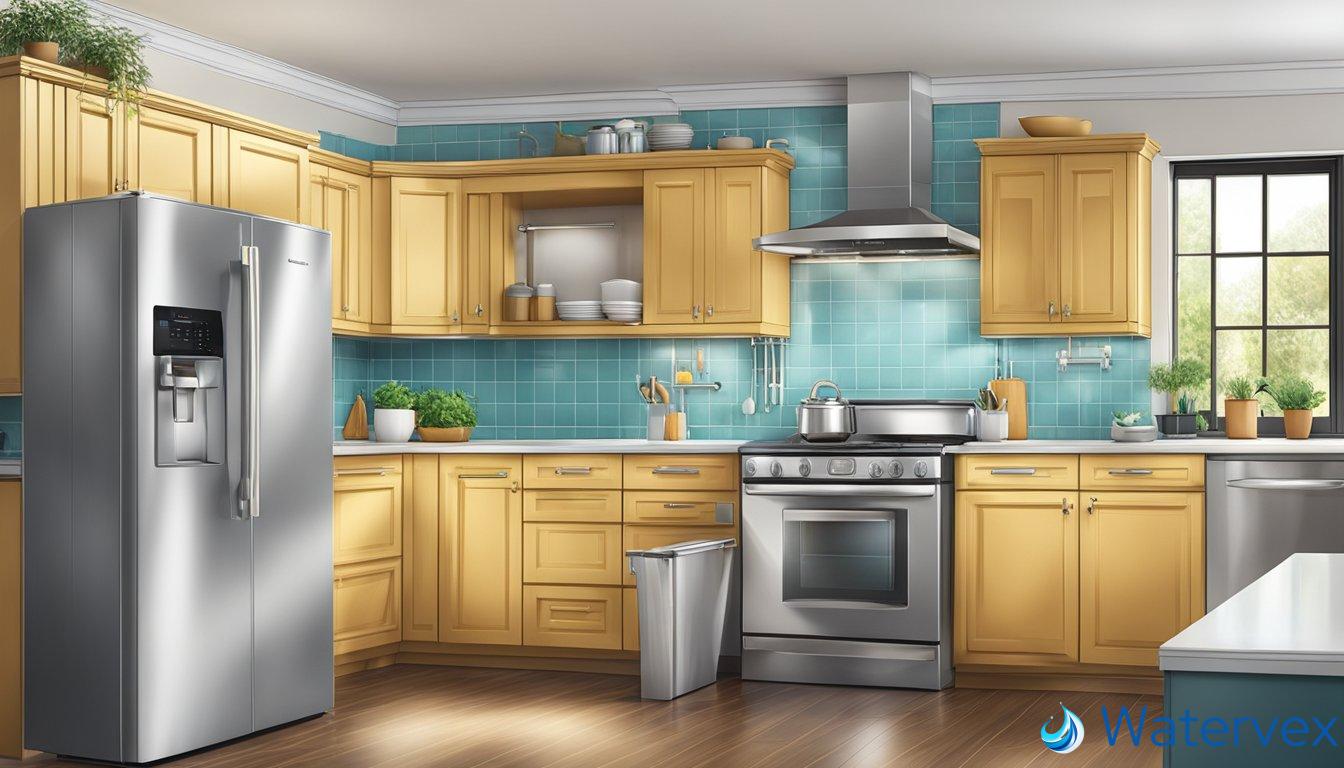Managing the quality of your water at home goes beyond convenience; it can have significant impacts on both your health and domestic life. Investing in a water conditioner is one approach to addressing hard water issues without the use of harsh chemicals. Unlike water softeners that replace minerals with sodium, water conditioners neutralize the minerals to prevent scale without adding anything to the water. This can result in water that’s safer for consumption and kinder to your skin and hair.

Your home appliances and plumbing systems also stand to benefit from conditioned water. By mitigating mineral buildup, water conditioners extend the lifespan of appliances like dishwashers and water heaters. Additionally, they help maintain efficient water flow in your pipes. This dual action of protecting your investments and health makes water conditioners an appealing choice for many households.
Key Takeaways
- Conditioned water offers a chemical-free solution for hard water problems.
- Home appliances and plumbing systems benefit from reduced mineral buildup.
- Healthier water contributes to better skin, hair, and overall well-being.
Key Advantages of Using a Water Conditioner
Water conditioners present a practical solution for managing the quality of your household water. When you incorporate a water conditioner into your home, you’ll notice several immediate improvements that contribute to both the longevity of your appliances and the health of your family.
Softens Hard Water
Hard water is saturated with minerals like calcium and magnesium, which can lead to scale buildup and interfere with soap’s ability to lather. A water conditioner mitigates these issues by altering the chemical structure of these minerals, making the water gentler on your skin and hair. Essentially, it provides all the benefits of soft water—from better tasting drinking water to a more pleasant shower experience—without the added sodium often associated with traditional water softening methods.
Enhances Appliance Efficiency
By minimizing mineral buildup, water conditioners ensure that your appliances such as washing machines and dishwashers operate more efficiently. This not only extends the life of your appliances but can also lead to lower maintenance costs. Over time, appliances running with conditioned water maintain peak performance and consume less energy, which means savings on your utility bills.
Improves Water Quality
Water conditioners play a crucial role in enhancing the overall quality of your home’s water. Apart from the softening effects, these systems are designed to filter out impurities and contaminants, providing you with cleaner and safer water for daily use. Whether it’s for drinking water or cooking, a water conditioner can significantly improve the taste and safety of the water you consume every day.
Incorporating a water conditioner into your life can lead to substantial benefits that are felt across various aspects of home living. From tactile improvements like scaled back hardness affecting your skin and hair to more long-term fiscal advantages through efficient appliance functioning, the allure of conditioned water is hard to overlook.
Impact on Home Appliances and Plumbing

Installing a water conditioner can lead to significant benefits for your home’s appliances and plumbing systems. It directly addresses the issues of scale buildup and water contaminants that often affect the efficiency and longevity of these systems.
Protects Plumbing Systems
Your home plumbing is susceptible to scale buildup from hard water, which can restrict water flow and pressure in pipes and faucets. A water conditioner mitigates this risk by transforming the minerals within the water, thus preserving the integrity of your plumbing and ensuring a consistent flow of water supply.
Extends Appliance Life
Appliances like your dishwasher and water heater function best with conditioned water. These devices are often prone to damage from hard water minerals, which can lead to premature malfunctions. By preventing mineral deposits, a water conditioner can help extend your appliances’ operational life.
Maintenance and Cost Benefits
Conditioned water requires less maintenance, given that scale deposits are minimized. Less repair means reduced costs over time, amounting to savings in both the short and long term. Moreover, appliances running on conditioned water use less energy and detergents, contributing to further cost efficiency.
Using conditioned water benefits your home’s appliances and plumbing systems by providing proactive protection against wear and tear. The knock-on effects are reduced maintenance requirements and running costs, ultimately contributing to a hassle-free and cost-effective household maintenance routine.
Health and Lifestyle Benefits of Conditioned Water

Conditioned water revolutionizes daily routines, enhancing your health and home environment significantly. With improved water quality, changes in your hair, skin, and daily chores are not just noticeable—they’re transformative.
Promotes Healthy Skin and Hair
When you shower in water that’s been through a water conditioner, you’re likely to notice your skin and hair feel softer and more supple. Hard water can leave behind an invisible film that makes skin feel dry and hair look dull. Conditioned water, on the other hand, helps soap lather better, reducing the amount of soap scum left behind and therefore, leading to healthier skin and hair. Plus, without excess minerals binding to the hair, it retains its natural shine and strength.
Improves Cleaning and Laundering
Your chores become a bit easier with conditioned water. Laundry feels softer and looks brighter when washed in conditioned water, due to the reduced mineral content, resulting in less mineral deposits on your clothing. This same principle applies to cleaning around the house—fewer mineral deposits means less scrubbing to remove soap scum from tiles and faucets. Dishes rinse cleaner too, leaving you with spotless glasses and silverware without having to hand-dry or rewash.
Better Tasting Water
Conditioned water often equals better tasting water. You’ll find your beverages and cooked meals taste as they should without the interference of a metallic or earthy undertone often imparted by unfiltered tap water. Moreover, health is at the forefront here; without contaminants and excess minerals, your water becomes a purer vehicle for hydration.

